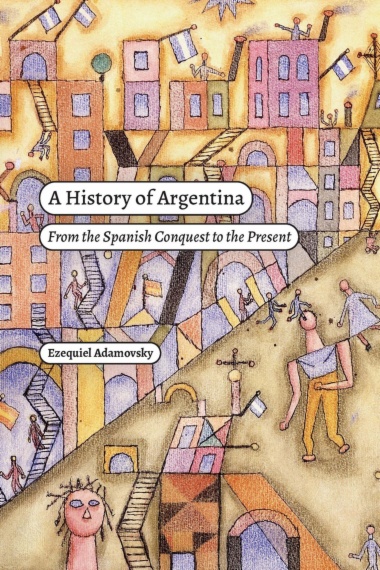In A History of Argentina, originally published in Spanish in 2020, Ezequiel Adamovsky presents over five hundred years of Argentine economic, political, social, and cultural history. Adamovsky highlights the experiences of women, Indigenous communities, and other groups that have traditionally been left out of the historical archive. He focuses on harmful aspects of Spanish colonization such as gender subjugation, the violence enacted in the name of the Catholic Church, the role of the economy as it shifted from the encomienda system into modern industrialization, and the devastating effects of slavery, violence, and disease brought to the region by Spanish colonizers. Adamovsky also discusses Argentina’s independence and territorial consolidation, the first democratic elections in 1916, military coups, Peronism, democratization and the neoliberal reforms of the 1980s, and many other facets of Argentine life up to the 2019 presidential election. Concise, accessible, and comprehensive, A History of Argentina is an essential guide to this nation.
- Cover
- Contents
- List of Abbreviations
- 1. Violence: The Conquest and the Colonial Order
- 2. Revolution!: The End of the Colonial Order, the Wars of Independence, and a Long Period of Discord (1806–1852)
- 3. The Great Transformation: The Expansion of the State and the Market in Argentina (1852–1912)
- 4. Liberal Argentina and Its Constraints: From Failed Democracy to Peronism (1912–1955)
- 5. The Pendulum: Dictatorship, the Market, and Popular Power, from Perón’s Overthrow to the National Reorganization Process (1955–1983)
- 6. Democracy Devalued: Between the Promises of Democracy and Neoliberalism, from Alfonsín to Macri (1983–2019)
- Epilogue: Argentine History over the Long Term
- Selected Bibliography
- Index
- A
- B
- C
- D
- E
- F
- G
- H
- I
- J
- K
- L
- M
- N
- O
- P
- Q
- R
- S
- T
- U
- V
- W
- X
- Y
- Z

